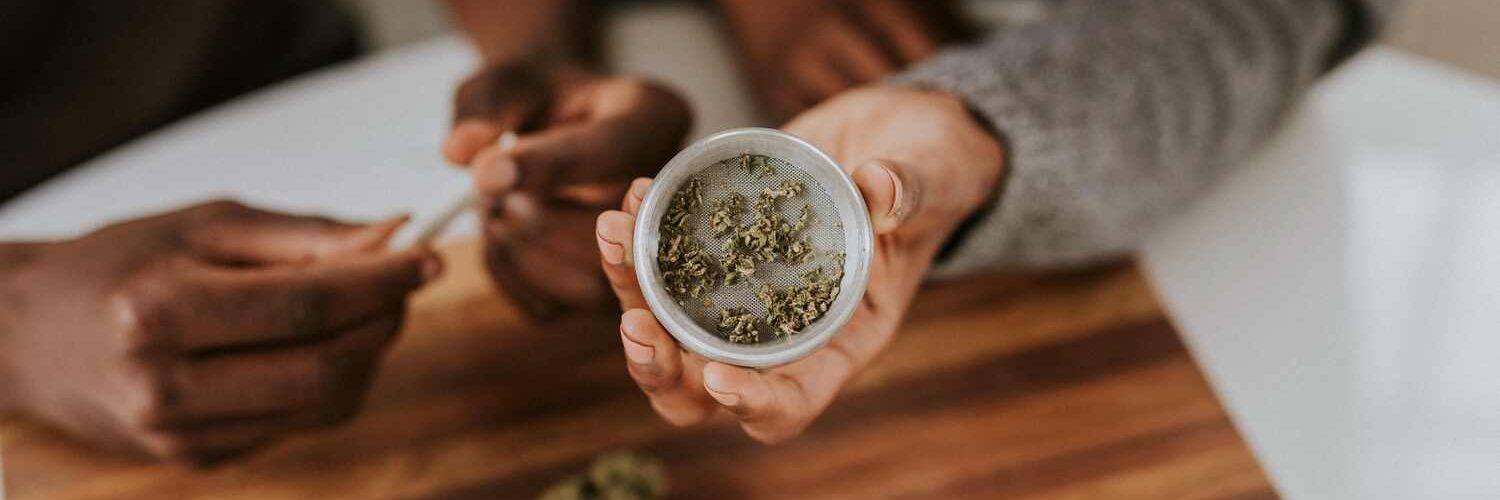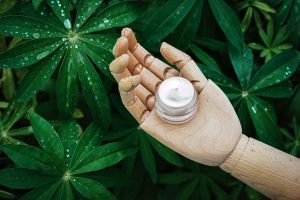Medical Marijuana And Opioid Use Disorder
- Jake Peter
- Published: July 21, 2020
- Fact-checked by Dr. Desiree Granados

Can Medical Marijuana Help Opioid Use Disorder?
Opioid use disorder (OUD) is a serious medical condition that involves ongoing dependence on opioids, such as heroin and prescription painkillers. Opioids are highly dangerous drugs that can easily result in overdose, coma, and death if misused.
According to the National Institute on Drug Abuse, approximately 128 people in the U.S. die from opioid overdoses each day, and over 2 million Americans struggled with opioid addiction in 2017 alone.
While not an effective OUD treatment on its own, medical marijuana may help this crisis by easing withdrawal symptoms, reducing feelings of opioid pleasure and reward, and reducing overdose rates.
What Is Opioid Use Disorder?
Opioids produce feelings of euphoria and reduce feelings of pain. Using opioids over time leads to dependence and an increase in tolerance, which means that a person with OUD will need to take more of the drug to feel these effects over time. Common opioids include heroin, oxycodone, hydrocodone, and morphine.
OUD occurs when a person experiences at least two of the following symptoms within a 12-month period:
- Strong desires to use opioids
- Unsuccessful efforts to reduce opioid use
- Taking larger amounts of opioids or taking opioids for a longer period than intended
- Avoiding activities to use opioids
- Increased tolerance
- Increased tolerance
- Experiencing withdrawal symptoms
- Inability to fulfill responsibilities due to opioids
- Difficulty with relationships due to opioid use
If you develop OUD, you can experience withdrawal symptoms when you stop using opioids, even for a short period of time. These symptoms can be very unpleasant, including pain, chills, diarrhea, insomnia, and severe nausea.
Professional treatment is necessary to overcome withdrawal symptoms and recover from OUD — and research shows that medical marijuana may help.

Can Medical Marijuana Help Opioid Use Disorder Patients?
While further research is necessary, recent studies suggest that medical cannabis may help relieve some symptoms of opioid withdrawal.
When a person takes opioids, they will experience feelings of euphoria due to the drug’s triggering of the reward response in the brain. CBD, the non-psychoactive component of medical marijuana, may help reduce the impact of this reward response without producing replacement feelings of euphoria. In addition, CBD may also reduce heroin cravings.
Medical marijuana may also help improve the outcome of OUD treatment programs. When used as a supplement to professional rehab treatment, small doses of medical marijuana may increase rehab retention rates, as well as ease unpleasant withdrawal symptoms.
States who operate medical marijuana programs also see lower rates of opioid overdoses than other states. Studies found that states with legalized cannabis laws saw a 23% reduction in emergency room visits for nonfatal overdoses and a 24% reduction in overdose deaths.
Applying for a Medical Marijuana Card for OUD
If your state legalized medical marijuana and has opioid use disorder on the list of qualifying conditions, you can apply for a cannabis card to receive the treatment you need. The Sanctuary Wellness Institute is here to guide you through the process.
Our friendly staff members can connect you with a physician licensed to certify patients for medical marijuana in your state and answer any questions you may have about the application. Contact the Sanctuary at (484) 346-5140 to schedule your evaluation.
States Where We Offer Medical Marijuana Card Services
How we reviewed this article:
- Drug Overdose Death Rates
https://nida.nih.gov/research-topics/trends-statistics/overdose-death-rates - Effects of Cannabidiol on Morphine Conditioned Place Preference in Mice
https://pubmed.ncbi.nlm.nih.gov/28793355/ - Emerging Evidence for Cannabis’ Role in Opioid Use Disorder
https://www.ncbi.nlm.nih.gov/pmc/articles/PMC6135562/ - Medical marijuana policies and hospitalizations related to marijuana and opioid pain reliever
https://pubmed.ncbi.nlm.nih.gov/28259087/ - Medical cannabis laws and opioid analgesic overdose mortality in the United States, 1999-2010
https://pubmed.ncbi.nlm.nih.gov/28259087/
Current Version
July 21, 2020
Written By
Jake Peter
Fact-checked By
Dr. Desiree Granados
Editorial Process
Our Editorial Process

Jake Peter received his journalism degree from Emerson College and has been writing content for the Sanctuary Wellness Institute since 2021. He is passionate about all things cannabis.







